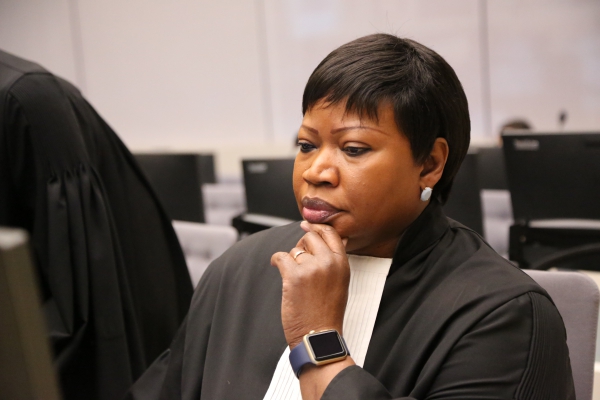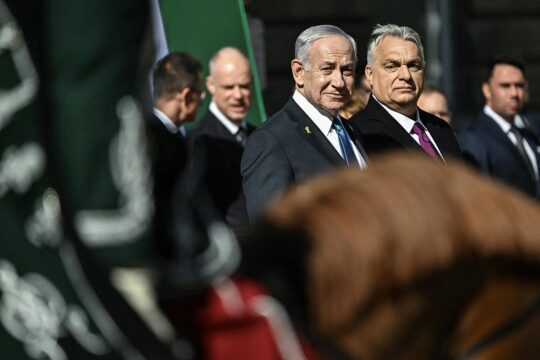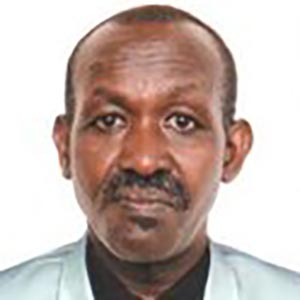Cameroonian Hugo Moudiki Jombwe is a specialist in international criminal law and currently head of mission in Rwanda for Belgian NGO RCN (Réseau des Citoyens/Citizens Network) Justice and Democracy. In an interview with JusticeInfo, he slams the decision of certain African States to pull out of the International Criminal Court (ICC). He thinks Africa should rather fight for the ICC’s ability to investigate freely wherever crimes within its jurisdiction are committed, without anybody being able to impose a veto.
Justiceinfo: When the ICC prosecutes people who have been defeated or political opponents, African Heads of State say nothing. But when it starts to go after sitting presidents, there is outrage. Don’t you think that African leaders are also trying to use the Court for political ends?
Hugo Jombwe: After the adoption of the Rome Treaty that serves as the Court’s Statute, many African States signed up. Today we may wonder whether at least some did so thinking that the ICC was a weapon against their political opponents. But you know, history has some surprising turnarounds. One of the Heads of State who filed a request with the ICC, before his country was even a member, is now in the dock there. That is Laurent Gbagbo. Yes, there are reasons to think there were political motivations, that some wanted to use the Court as a political tool.
JusticeInfo: Does Africa currently have an alternative to the ICC?
HJ: The African Union has decided to merge the African Court of Justice and the African Court of Human and People’s Rights, giving the new court criminal jurisdiction notably for international crimes. But that has not yet come into force. Even if it had this jurisdiction, I do not see it as an alternative to the ICC, but rather as a complementary institution, the main aim being to try the crimes where they were committed. The problem remains that there is an immunity clause for Heads of State and other mechanisms that are likely to make it inefficient.
JusticeInfo: Does Africa have the financial means to run an African criminal court, whilst there is a lack of funding for national courts?
HJ: The question of financial resources is an important one. Even if there were the judicial tools at national and regional level, the issue of material and financial resources remains crucial. If the States put enough resources into national judicial systems, then they would function as they should with regard to international crimes. If every country provided enough resources for investigations, for trials, there would be no need to go to a regional court or the ICC. So if Africans gave their own courts the means to prosecute, the ICC would not have much reason to get involved.
JusticeInfo: But some States don’t even manage to pay their contribution to the AU…
HJ: If the proposed African Court is not given enough means, it will be inefficient. There are already some countries that have difficulty meeting their contributions to the AU. But logically, if there is an African court, it will have to be funded by African States.
JusticeInfo.net: Why do you think some African leaders are trying to make the ICC a continent-wide campaign, whereas only 30-odd countries are members of the Rome Statute?
HJ: Thirty-four out of fifty-four member States is a considerable number. We could even say that African States signed up massively. The weight of African countries compared to the overall number of ratifications is considerable, except that they will not stop prosecutions by pulling out. Even if they do, prosecutions can be launched at the request of the UN Security Council, as in the case of the Sudanese president. That is unless they want to pull out of all international institutions…
JusticeInfo.net: What do you think would happen to the ICC if all the African States Parties pulled out?
HJ: First I should say that not all countries plan to do so, given that some – such as Botswana, Côte d’Ivoire, Senegal and Benin -- have publicly expressed their support for the Court. But it is still true that the withdrawal of some countries can have an impact on the Court’s image, and so it is a kind of protest. It could affect the ICC’s image, but it won’t affect much else, because those suspected of international crimes will still be prosecuted, except that the ICC Prosecutor may not be able to do it directly without going through the UN Security Council. And there, it is regrettable that some Security Council members have the power to delay or block requests for prosecutions, as in the case of Syria.
JusticeInfo: How can relations between the ICC and Africa be improved?
HJ: First by dialogue. They need to use this mechanism that would allow them to express their problems with the Court and agree, with other States Parties, what is acceptable and what is not. Some say: “we don’t want sitting Heads of State to be prosecuted”, but they want to change a fundamental rule, under which there is no impunity or waiver of responsibility before international criminal courts. The other problem is the veto. Either it is agreed by the ICC Assembly of States Parties and the UN that there is no veto when it comes to international crimes, or the Prosecutor’s hands are left free to go ahead without the Security Council, so that there can be prosecutions wherever crimes within the ICC’s jurisdiction are committed. Otherwise, Africans will always have the impression they are the only ones being prosecuted. So, rather than pulling out, they should be demanding that investigations elsewhere not be blocked.







